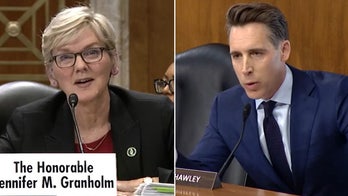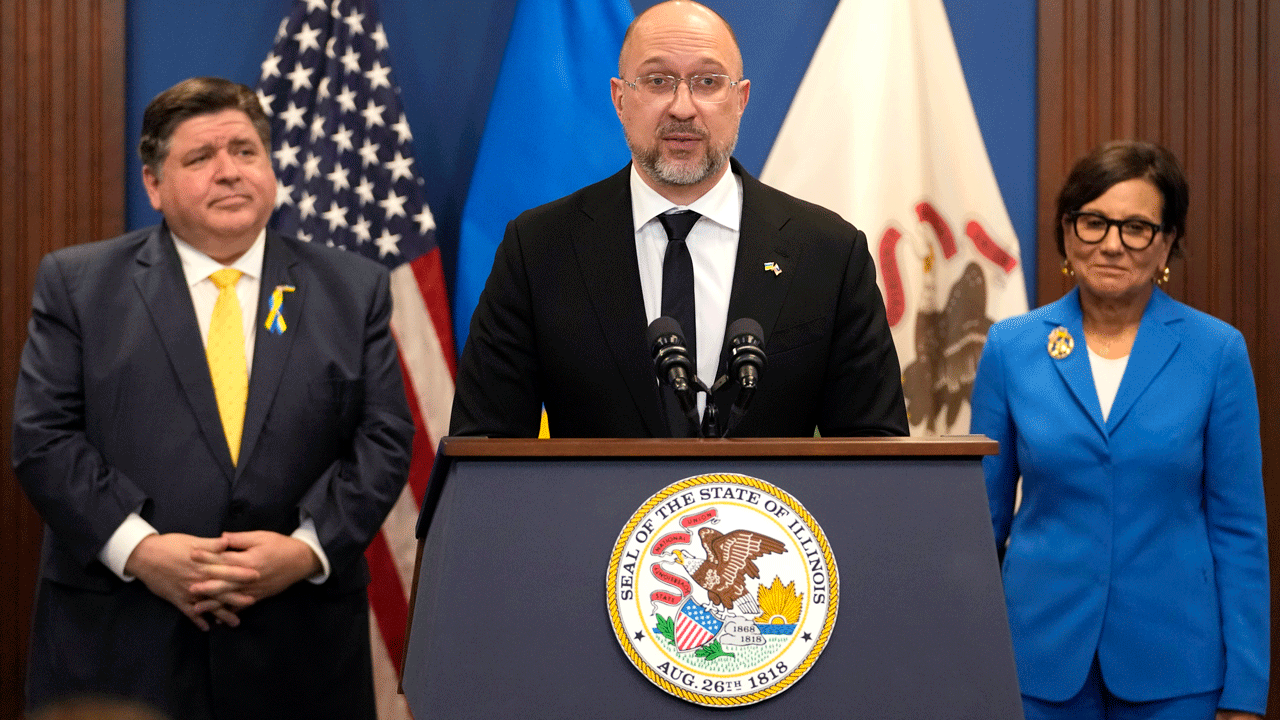One family's immigration story - 5 undocumented kids
Teresa Ortiz arranged to have all five of her children brought to the U.S. by human smugglers to avoid persecution by gangs in El Salvador.
This is the first of two parts. On Friday, the story will explore how immigration lawyers are using the 2008 human trafficking law to keep kids like the Ortiz family in the U.S.
The five Ortíz children were outside their grandmother’s home in El Salvador when a black car with tinted windows pulled up, four men got out, and gunned down a 21-year-old neighbor.
The blood-soaked man stumbled toward them, then collapsed and died.
The nightmare would not end there.
The children, who ranged in age from 1 to 11, were witnesses. And the men involved in the lethal hit were members of one of El Salvador’s dreaded street gangs, dubbed “maras.”
The maras, a generic term for the violent street gangs terrorizing parts of Central America, relentlessly called the children’s grandmother, who had been looking after them since their mother – like so many others – crossed several borders in 2007 to flee an abusive husband and work in the United States and send back money for her family.
“They said they’d kill the children. They said they knew the children had seen everything,” said their mother, Teresa Ortíz, in the apartment she rents in the Brentwood section of Long Island, New York. “My mother changed her phone number several times, and each time they found out the new one and continued calling and threatening.”
And so Ortíz worked day and night, in factories, and New York homes, to amass the tens of thousands of dollars it took to get all five children out of El Salvador between 2009 and 2014.
The last one, Saúl, her only son, reunited with her two months ago. Saúl, 15, a soft-spoken boy who is rail-thin, had become a target of the maras’ unvarnished recruitment pitch: Join or die.
The Ortíz children are part of the more than 100,000 unaccompanied minors who have traversed Central America and been handed off from smuggler to smuggler to reach the U.S. in recent years.
Like Saúl and his four sisters – Elivenia, Anyeli, Myelin and Luciana – many have been put on the dangerous trek north by their parents because of gang violence, and gang pressure to join, as well as poverty.
“I did not want to go outside [my grandmother’s house],” said Saúl, who crossed the U.S.-Mexico border into Texas two months ago after having traveled for nine days from his homeland. “The maras threatened me. I was on a bicycle one day to buy tamales for my grandmother, and they said I was on their turf. They said they’d kill me if I went there again.”
They also threatened him with harm if he did not join.
“If you refuse, you are murdered,” Saúl said with a mix of bewilderment and matter-of-factness.
His mother, who is 32, hired a smuggler to arrange for Saúl’s trip – via cars, vans, truck and foot – to the U.S. for $4,500. Others being smuggled with him included two women with small children, and another unaccompanied minor, younger than Saúl.
“I did not feel afraid,” Saúl said. “I did not know the men smuggling us, but what sustained me was knowing that I would see my mother again.”
A Mother's Heart-Wrenching Decision
Deciding to send your children on a journey that has claimed countless lives – people have died from the intense desert heat or at the hands of criminals – including, sometimes, the smugglers themselves, who prey on them – is gut-wrenching, Teresa Ortíz said.
Opting to send young daughters on the 1,500-mile journey alone is especially traumatizing, she said. So many young girls are raped along the way.
“A mother is never at peace when your children are not with you,” Ortíz said, adding that it is especially difficult when life in the home country is a daily battlefield.
“As a mother, I was not going to allow maras to kill them. I prefer them to take the risk to get here for a better life than face certain death in El Salvador.”
El Salvador, a country of some 6 million people, has among the world’s highest murder rates.
The same is true of Honduras and Guatemala, the other two countries that account for most of the youths who have been part of the influx at the U.S.-Mexico border that the Obama administration called “a humanitarian crisis.”
La Unión, the area in the eastern part of El Salvador that the Ortíz family comes from, has a far higher murder rate than the national average, according to the U.S. State Department. Much of the violence comes from gang members, who are steeped in murder for hire, carjacking, extortion, as well as trafficking drugs, arms and humans.
Their threats, U.S. authorities and international human-rights organizations say, are backed by unequivocal action that has grown bolder and bloodier in recent years. The maras are arming themselves with high-powered rifles and have attempted to join the Salvadoran army in order to receive military training, the nation’s public safety minister, Ricardo Perdomo, said in April.
The number of people reported as missing in El Salvador climbed 93 percent in 2013 over the previous year, and gangs are believed to be responsible for the bulk of the disappearances, the U.S. State Department reports.
Salvadorans who have fled to the United States say calling authorities is of little help.
The impoverished nation, the U.S. State Department notes, “lacks sufficient resources to properly investigate and prosecute cases and to deter violent crime. El Salvador’s current criminal conviction rate is five percent.”
What’s more, the agency says, “Assaults against police officers have risen, and public shootouts are not uncommon.”
A Dashed Dream
The Obama administration has come under fire over its role in and handling of the border crisis. The president's recent decision to delay executive action on immigration matters until after the midterm elections has only heightened the criticism.
Republicans blame the president's decision to relax deportation rules for fueling rumors circulating in Central America that once here, migrant kids are allowed to stay. They want the Obama administration to expedite the process for sending minors back to their homelands, and to put pressure on the Central American nations to do what they must to stop the exodus.
In July, the Obama administration asked Congress for $3.7 billion in emergency funds that would include funding for the Justice Department to hire 40 new immigration judge teams and about $1 billion for immigration enforcement efforts within the Homeland Security Department to help speed removal of immigrant families traveling with children, in addition to about $295 million to support repatriation, reintegration and border security efforts in Central America. But none of the funds have been approved.
Supporters of the minors want the Obama administration to lean toward helping as many of them as possible get a fair hearing – including legal counsel – and the chance to stay in the United States.
“It was never my intention to come to the United States in order to stay here permanently,” said Teresa Ortíz. “I was fleeing an abusive husband who would have killed me.”
She said that in 2007, when she crossed the border with a sister, she envisioned putting enough time and space between her and her batterer to get her thoughts together, earn better wages than the $40 a week she made in El Salvador and return a few years later with enough savings to move herself and her children to a safer part of the country.
But when the nation went into its downward spiral, and Salvadorans saw the rise of gangs – part of the reason were mass deportations of gang members from the United States – that dream evaporated, she said. Instead, she shelled out a total of $30,000 to smugglers to bring her children here.
The eldest daughter, Elivenia, crossed in 2011, taking a month to arrive. The other three girls crossed last year, and Saúl came in May 2014.
“I never thought things would take a turn in El Salvador the way they have,” she said. “I never thought I would end up having to get all my children out of there.”
No one, she said, wants to leave their homeland to go to a place where they are unable to communicate, where they don’t know the culture, and where they are far away from their children.
“I had a place to live in El Salvador," she said. "Even if you didn’t have anything to eat sometimes, a neighbor would lend a hand, would give you some food.”
To her youngest kids she was almost a stranger, she said. She left when they were very young – her youngest, 6-year-old Luciana, was just an infant.
“There’s a distance I feel sometimes between us,” she said, referring to Luciana, who has become remarkably proficient in English in the year since she crossed the border. “When she first saw me, when I went to get her in Texas after I was called by [immigrant shelter officials], telling me that my daughters were there, she looked at me like ‘Is that my mother?’ It is very painful.”
Discovering Childhood
All the Ortíz girls have been granted Special Immigrant Juvenile status, a visa available to children who were abandoned, abused or neglected by one or more of their parents. They qualified because they had no parent deemed fit in El Salvador.
The visa often paves the way for a green card.
Saúl is going through the process, which involves a local family court making a determination about whether the child meets the visa requirements.
The visa stems from a 2008 law, called the Trafficking Victims Protection Reauthorization Act, which allowed for more leniency regarding unaccompanied minors who come from countries other than Mexico and Canada.
U.S. officials, scrambling to shut triggers for the influx from Central America, are taking a hard look at the law, and considering ways to make it significantly more restrictive.
Saúl thinks of the difference it has made for his sisters, and says he hopes it remains in place.
On a recent day, he and the other Ortíz children rode bicycles in circles in the backyard of the multi-family home in which the family rents a basement apartment. There were squeals and laughter and smiles – the ordinary sights and sounds of children.
But to Saúl, Elivenia, Anyeli, Myelin, and Luciana, playing outside is – to varying degrees – new and remarkable. It means being carefree, it means being able to be outdoors, it means no longer looking over your shoulders or bracing to run for cover.
It means being safe.
“Life here is so peaceful,” Saúl said. “There are no maras, no violence, no death. You live happily here. You do not see ugly things. You can go through the day without being threatened or killed.”
Luciana notes that she learned to ride a bike here.
“I feel safe, I feel more happy,” she said, adding that she enjoys school.
“I want to be a teacher someday.”





